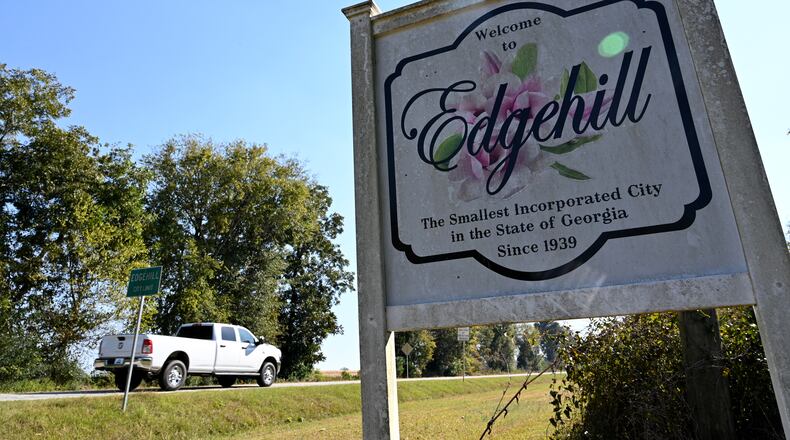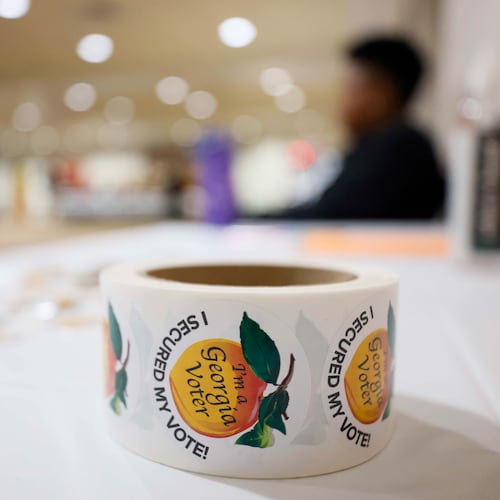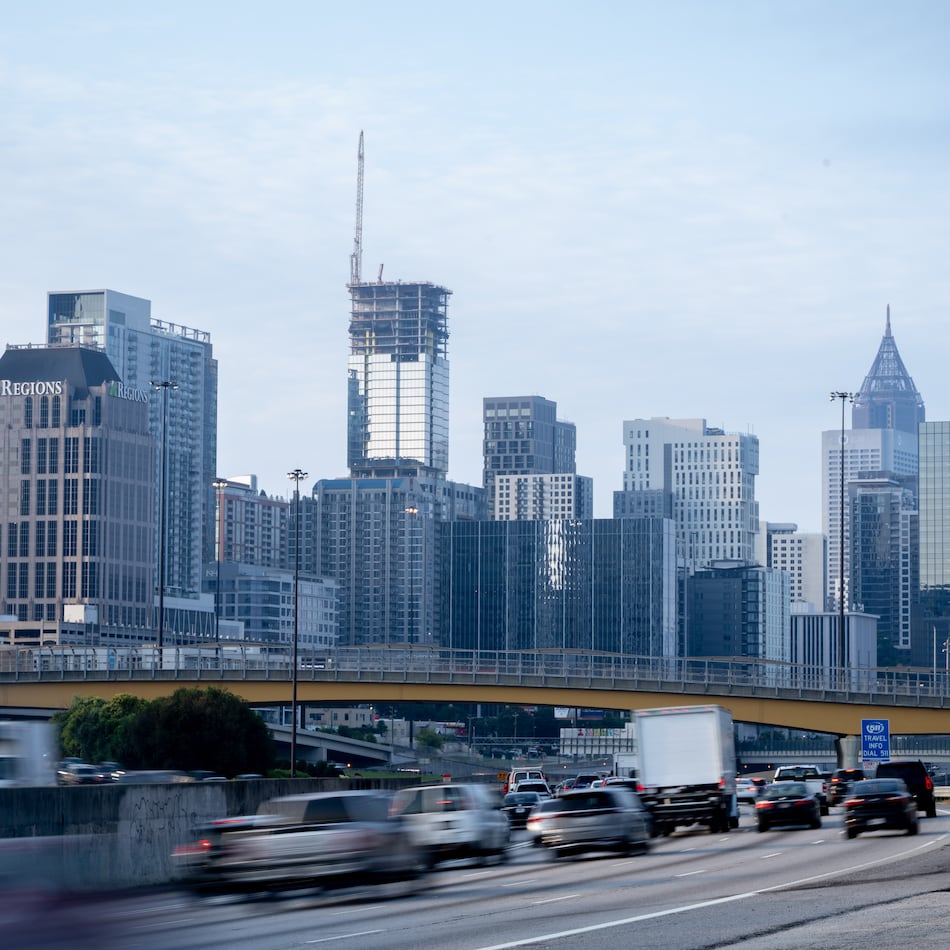EDGEHILL — About 50 friends and family members, most from out of town, gathered for a party in Mitch Raley’s front yard several weeks back.
Beyond the good times and fresh oysters, it was a momentous event: It roughly tripled Edgehill’s population that day.
In Georgia’s smallest incorporated city, everyone counts. All 24 or so of them. And residents know each other — although not as much as you might think.
Locals often double up to get things done. The mayor, who is unpaid, also reads his neighbors’ city water meters. The part-time city clerk, the municipality’s only paid employee, also serves as a volunteer firefighter with her husband and daughter.
The city council has two members, and they’re married to each other.
“It’s unique, I guess you could say,” said council member Kristi Kitchens.
Some small cities in Georgia are booming, getting the spillover from bigger cities or military bases or college towns. Many others are shrinking, as younger people leave for jobs elsewhere.
The smaller the town, the tougher the challenges can be. Among Georgia’s 20 smallest incorporated cities in 2020, 16 lost population in the preceding decade. In contrast, among the state’s 20 largest cities, just one saw its population decline.
Credit: HYOSUB SHIN / AJC
Credit: HYOSUB SHIN / AJC
Edgehill, an hour’s drive southwest of downtown Augusta, is something different. In recent decades its population has stayed relatively steady. As small as it is, though, even a single family moving marks a big change.
Residents largely celebrate the city’s size. Municipal signs boast about being the state’s smallest incorporated city. A city logo includes a magnifying glass. “It’s the small things that matter,” according to the city’s Facebook site.
It’s pretty easy to learn everyone’s name. You can, too. Darlene, Warren, Jamie, Kathy, Dewey, Vicky, Libby, Gary, Kristi, a different Kristie, Annette, Michael, Gloria, Nancy, Mitch, Andie, Blake, Mandy, Alan. And five young kids.
Connections here often go back generations. So does a sense of place. Standing in his front yard in the center of town, Raley can see the home where his mom grew up, another where his dad was raised and a third that was his grandfather’s house.
“You know if there’s a death, Ms. Annette or Ms. Gloria or any of the others will cook a dessert or a dish and they will be there,” said Raley, who grows crops in the fields behind his house. “Or if you are in a bind, one of your neighbors will help you fix a fence or drive a tractor for you that afternoon or get you out of a ditch.”
Leading up to Christmas, Kitchens’ husband and the mayor usually maneuver a borrowed bucket truck to install the municipality’s modest collection of decorations, illuminated snowflakes, angels and reindeer.
Jodi Kelley remembers one year when her kids desperately wanted Rudolph to be on the power pole closest to their house. It took Kelley one conversation with her neighbor/city councilmember to enact a Christmas miracle. No matter that Kelley technically lives just outside the city limits. Another family wanted a reindeer’s nose to have a red light, rather than a white one, to look like a genuine Rudolph. Done.
When one of their own came home from eight months in a rehabilitation center after a head injury, locals lined the road with signs and banners, honking car horns.
But even here, it turns out, not everyone knows everyone.
Credit: Hyosub Shin/AJC
Credit: Hyosub Shin/AJC
The challenge of the meet and greet
There are 12 occupied homes. One church, which holds services sporadically. One long-vacant school building. At least two buildings that used to be small stores.
One paved public parking space, built to meet disability regulations at the usually shuttered City Hall, which you drive across grass to get to. And 10 feet of sidewalk in the entire town, going from the parking space to the City Hall door.
Other than farm operations, all of Edgehill’s commercial businesses of the past are gone, unless you count Annette Black, 82, who cuts hair on Wednesday mornings.
Yet even in this speck of a community, people don’t often visit with one another.
Part of the problem is that there are not a lot of places left to meet. And people are busy.
There are paying jobs to do, which requires driving somewhere else for work. Kids’ events to attend, which also means traveling to other towns. Walk in a park? See a movie on the big screen? Go to a grocery or restaurant? Visit a dentist? Attend class? Away. Away. Away. Away. Away. And when people are home, they often cocoon, unless they are out in nearby pastures and woods, residents say.
“It’s a nice quiet little town. Everybody tends to their own business,” said Black, who has lived in the area for most of her life. “Back when I was growing up neighbors looked after neighbors. It is not like that anymore, not even in Edgehill, Georgia.”
Some residents aren’t sure of the names of newcomers who arrived in recent years.
Jeremy Kelley, the county sheriff, who lives just outside of town, sees it as part of a much bigger trend. “I read a quote the other day that technology has brought us closer to the people who are far away from us but farther away from the people who are close to us.”
Credit: HYOSUB SHIN / AJC
Credit: HYOSUB SHIN / AJC
Youngest mayor, briefly
Edgehill was once a somewhat bigger place, where people gathered more often. In 1960 it had about twice as many residents. Locals say there used to be a cotton gin in the city and at least four small stores, all drawing surrounding farmers for afternoon visits and chats with neighbors. One shuttered store still has a row of chairs out front.
As farming and jobs shifted, the gin closed, the stores did, too, and the city’s population declined. Some communities in the surrounding area essentially became ghost towns. Edgehill sits in Glascock County, which has just under 3,000 people, fewer than some metro Atlanta high schools.
Still, over the years, Edgehill residents have tried to highlight the city’s own identity. Several years back they held their own festival, the Edgehill Frolic, featuring arts and crafts and even, somehow, a parade.
Kitchens, the councilwoman, wants to create a small park in Edgehill to make a focal point where locals can gather. But money is tight. So far the primary official public service Edgehill offers is water from the city’s two wells. Beyond their water bills, residents pay city property taxes, which are so modest that some locals say they don’t recall how much they are.
Credit: HYOSUB SHIN / AJC
Credit: HYOSUB SHIN / AJC
Dewey Belcher, Edgehill’s 79-year-old mayor, didn’t want to be interviewed, but through his son he passed along a written statement. “It is my hope,” he wrote, “that our city will remain the quiet, charming city for generations to come.”
Getting people to serve the city hasn’t always been easy. People have a hard time recalling the last time there was a contested city election. The mayor’s son, Barry Belcher, who now lives in a nearby county, explained that once you are in office in Edgehill, you’re kind of stuck with it.
Except in his case. Immediately after he turned 18, while he was still in high school, a local leader took note of his efforts to help gussy up the city. She suggested he become mayor, a position that had recently come open. He agreed. As Belcher tells it, his surprised parents disapproved, it “turned into a big, big drama,” and he had to quit seven days later.
“I was the youngest mayor, with the shortest term, in the smallest city in the state of Georgia,” he said.
Another local served as mayor in his place, then, years later, Belcher’s father ended up serving as well.
The younger Belcher, who moved to Savannah, Atlanta and then a nearby rural community, still returns to help out. In 2019, he organized a dedication ceremony for a more substantial flagpole outside City Hall. He added hanging baskets on the light poles for the Flag Day celebration and a friend convinced the region’s congressman to visit and hoist a flag that had flown over the U.S. Capitol.
The event included a group picture of many, but not all, of Edgehill’s residents. Kitchens is still touched by the photos taken that day. One was of the city’s youngest resident — her then-six-month-old daughter — being held by the city’s oldest resident.
Kitchens says there’s an unspoken connection among residents. “Everybody feels like family. You feel like you know somebody, even if you don’t really know them.”
How many of Edgehill’s youth will stay long enough to grow old here isn’t clear.
Raley has encouraged his kids — the family’s fifth or sixth generation to live here — to expand their horizons. “I want them to get out and see the world ... And then they can see where they want to live.”
He owns a wooden, metal-roofed, one-room building that was once a store. His daughter has shown an interest in a culinary career. Maybe a bakery.
Things are different than they were. Now, customers don’t have to come to you. “You can ship cakes and goods all over the place now,” he said. Even from Georgia’s smallest city.
Credit: HYOSUB SHIN / AJC
Credit: HYOSUB SHIN / AJC
Credit: HYOSUB SHIN / AJC
Credit: HYOSUB SHIN / AJC
About the Author
Keep Reading
The Latest
Featured









